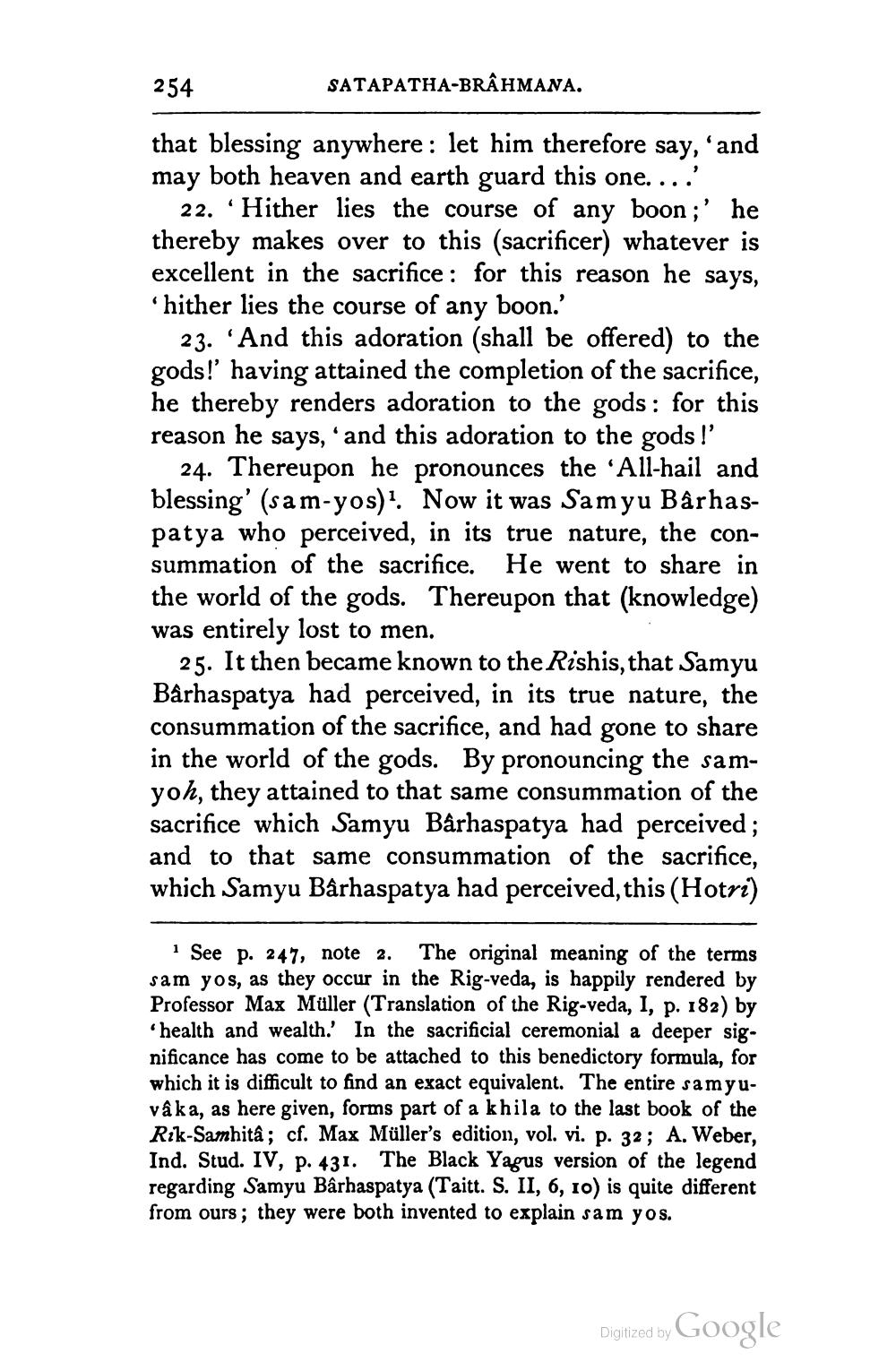________________
254
SATAPATHA-BRAHMANA.
that blessing anywhere: let him therefore say, 'and may both heaven and earth guard this one....'.
22. Hither lies the course of any boon;' he thereby makes over to this (sacrificer) whatever is excellent in the sacrifice: for this reason he says, hither lies the course of any boon.'
23. 'And this adoration (shall be offered) to the gods!' having attained the completion of the sacrifice, he thereby renders adoration to the gods: for this reason he says, and this adoration to the gods!'
24. Thereupon he pronounces the 'All-hail and blessing' (sam-yos)? Now it was Samyu Bârhaspatya who perceived, in its true nature, the consummation of the sacrifice. He went to share in the world of the gods. Thereupon that (knowledge) was entirely lost to men.
25. It then became known to the Rishis, that Samyu Bârhaspatya had perceived, in its true nature, the consummation of the sacrifice, and had gone to share in the world of the gods. By pronouncing the samyoh, they attained to that same consummation of the sacrifice which Samyu Bârhaspatya had perceived; and to that same consummation of the sacrifice, which Samyu Bârhaspatya had perceived, this (Hotri)
See p. 247, note 2. The original meaning of the terms sam yos, as they occur in the Rig-veda, is happily rendered by Professor Max Müller (Translation of the Rig-veda, I, p. 182) by
health and wealth. In the sacrificial ceremonial a deeper sig. nificance has come to be attached to this benedictory formula, for which it is difficult to find an exact equivalent. The entire samyuvâk a, as here given, forms part of a khila to the last book of the Rik-Samhita; cf. Max Müller's edition, vol. vi. p. 32; A. Weber, Ind. Stud. IV, p. 431. The Black Yagus version of the legend regarding Samyu Bârhaspatya (Taitt. S. II, 6, 10) is quite different from ours; they were both invented to explain sam yos.
Digitized by Google




